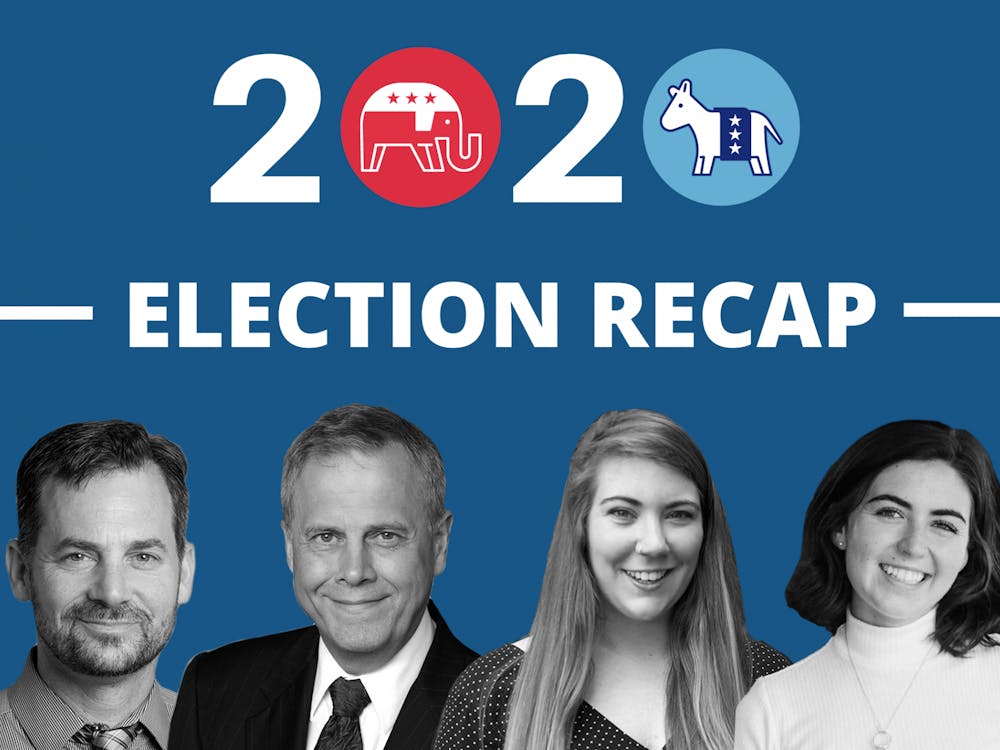You’ve definitely heard it. Two people are debating the merits of different presidential candidates when a third chimes in.
“You know — I don’t really keep up with the news. It’s just so negative and way too stressful. And politics? I just avoid it. And I’m happier because of it.”
Being apolitical is a point of pride for some in our era, when people argue that polarization has never been more pronounced (or not). Apolitical people sometimes argue that they’re maintaining the peace by not broaching that thorny topic of politics, or they imply that their position makes them wiser or morally superior than the rest of us mere mortals, who debate family separation and single-payer health care.
But being apolitical is a political choice, just like all the choices we make. Your silence communicates that you don’t care enough to take a stance and that you’d prefer to keep things the way they are: You see nothing wrong or unjust about our world.
Every time you say, “Hey, let’s stop talking about politics, this is boring!” even jokingly or lightheartedly, you affirm your belief that our world requires no change, and you shelter yourself from having to confront its realities and injustices.
But now, with primary season officially upon us, consider it your invitation to drop your “apolitical” label.
The first step? Reading or listening to credible news.
Reading the news is critical because it helps you to have informed conversations using reliable information. Citing your sources and asking those you’re talking with to do the same guarantees that you’re having responsible conversations that are more likely to lead to meaningful insights.
Some people have sworn off the news, arguing that it damages their health. While there is evidence that today’s news can elevate stress levels, explore other avenues to more thoughtfully consume news. For example, set boundaries around what times you’ll read and don’t infinitely scroll through your social media feeds. Instead, subscribe to some newsletters or browse the actual sites of news organizations to see the whole array of that day’s events.
Don’t know where to get started with newsletters? How about one from The New York Times, The Washington Post, The Wall Street Journal, The Guardian, The Oregonian and/or The Beacon? While you’re at it, consider purchasing a subscription to a publication to show your support for what journalists do and ensure they can keep doing it. Some of the rates are about the price of two to three fewer lattes or burritos per month, and if you’re a student, there are often special deals.
It’s easy to suffer from “Trump fatigue” and be tempted to never read a news article again when so much of the media, for better or for worse, centers on the president. However, the U.S. is an enormous country with news happening in every corner, much of it not focused on Trump. Also, there are nearly 200 other countries in the world. There’s a lot more for you to read about.
“But,” our formerly apolitical friend says, “How am I supposed to be informed about everything?”
You don’t have to be, because that would be impossible. Calls to be informed can pressure people to have a definitive opinion on everything. To reach a conclusion and have a stance on every issue would be stressful and also not recommended — don’t people who have their minds made up on everything concern you a bit? The aim is to be informed enough to have conversations about important topics, especially the ones that matter to you.
Realizing that you don’t have to be an expert on everything can also be liberating and provide you more opportunities to learn. While you shouldn’t dominate a conversation regarding a topic you know little about, don’t necessarily skip out on that conversation because you think you’re not informed. Instead, realize that you’ve been presented a great chance to ask questions, learn, and allow others to explain their views.
“Okay,” our reformed apolitical friend hesitates, “But I’m going to alienate some family and friends if I discuss politics.”
Consider why you think this way. Are you afraid of genuinely alienating people or just enduring some discomfort? There has to come a time when certain issues are so critical that you simply must bring them up in discussions with people and tolerate some discomfort and uncertainty in how they’ll react.
The editorial board believes that if there ever was a time to embrace those potentially uncomfortable discussions, it’s now. While the political systems we live in would be difficult to fundamentally reform, resigning yourself to being apolitical, not discussing them, and not taking action is a guarantee they’ll never change. Many people in power would prefer you think that.
While you should check your voter registration status for the Democratic primaries (if you’re participating) and for November’s elections, “politics” is far more expansive than deciding between Elizabeth Warren and Bernie Sanders, and even more expansive than sending representatives to the state legislature.
Whether you buy presents through Amazon or shop at a local store, what you wear, the music you listen to, the neighborhood you live in, and what you eat and drink, are political statements.
Ultimately, every choice is a political one, including the decision to remain apolitical. Choose wisely.
Have something to say about this? We’re dedicated to publishing a wide variety of viewpoints, and we’d like to hear from you. Voice your opinion in The Beacon.








